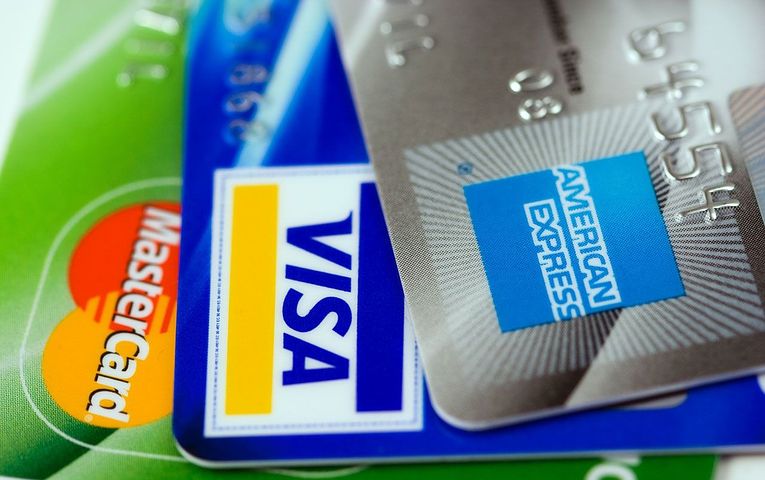
4 SIMPLE WAYS TO GET RID OF CREDIT CARD DEBTS
The use of credit cards is a good way to raise your credit rating and strengthen your creditworthiness. Credit cards also offer the opportunity to use the money you do not currently have to meet your immediate financial needs. When you use money you do not have, you are using what Robert Kiyosaki calls “other people’s money, OPM”. You also do not get to make a payment until the end of the month, and when you receive your credit card statement, you will be required to make only a minimum payment. This sounds good, right?
While this may sound like a good deal, it also has its negative implications. Let’s look at the use of credit cards from a different perspective. When using “another person’s money”, you could easily rack up debts before you realize it. [bctt tweet=”A credit card is like a double-edged sword. While it can be used to establish a good credit record, it can also hurt your credit rating when you have missed payments, late payments, and debts hanging on your neck each month” username=”wealthygen”].
CREDIT CARD DEBTS
Debt is the number one thing that is keeping people from achieving financial wellness and taking control of their financial future.
[bctt tweet=”If debt were a person, I’d slap it! ~ Michelle Singletary” username=”wealthygen”]
The easiest way for people to acquire more debts is through the use of credit cards. Due to the ubiquitousness of credit cards, we now have a generation of people, who rely on credit cards to meet their financial needs, thereby racking up debts that they cannot get out of.
Here are practical tips to help you pay off your credit card debts and become debt-free:
Send Your Credit Cards On Vacation
The first step in becoming debt-free is to stop acquiring new debts. If you pay your debts off today and rack it back up, you will be back to the same spot. So, first things first, send those credit cards on vacation! Yes, stop using them! Open your purse or wallet and remove all the credit cards you have. Put them in a place you will not have easy access.
In my experiences, I have found that you can easily fall victim of impulsive buying when you have your credit cards right there in your purse or wallet. Even when you have not budgeted for such purchases, you can easily be tempted to use your credit cards, after all, you will pay on them later.You will also need to remove your credit cards from all your online shopping or payment platforms. Replace them with your debit cards. It is easy to select your credit card as a payment method if it is already stored.
[bctt tweet=”Once you keep your credit cards where you cannot easily access them, you can then focus on paying down your debts, one at a time.” username=”wealthygen”]
Pay Off the Lowest Balance First
It can be very overwhelming when you have different credit cards and a series of debt. You may even begin to lose track of which debt is paid on time or which has the higher interest rate. The easiest way to start paying down your debt and to stay on track, is to focus on the debt with the lowest balance. When you pay the lowest balance off, you can start paying on the next higher one until all the debts are paid off.
Here is why this strategy is important: It is easy and faster to pay off a debt with the lowest balance. Once you pay it off, you will be motivated and more committed to paying off the next debt on the line. Moreover, you will be one debt down on your list of debts. That means, you will be more focused and control your finances better.
Pay More than the Minimum Payment
[bctt tweet=”It can be tempting to pay just the minimum amount due on your account. However, doing this will not only prolong the length of time it will take to pay the debt off, but also, will cost you a lot of money on interest. Interest on these debts is being compounded” username=”wealthygen”].
So, to save yourself a lot of money and time, pay as much as you can on your debts. It benefits your credit score, even more, when you pay off your balances in full each month. But when you cannot afford to pay it off, as may sometimes be the case, pay as much as you can.
Charge Only the Amount You Can Pay Off Each Month
The goal is for you to come out of debts for real! So, when you do pay your balances off, do not build them up again. You can still use your credit cards, but charge only the amount you can comfortably pay off each month. The moment you begin to pay some amount and leave some unpaid, you will be gradually building debt, and before you know it, you will be back to where you started.
[bctt tweet=”So, before you charge anything to your credit card, ask yourself this one question: Can I afford to pay this off at the end of the month? If you hesitate to answer yes, then you should reconsider using your credit card.” username=”wealthygen”]
These strategies will help you pay off your credit card debt and build your credit score at the same time. After you payoff your debts, enjoy your debt-free life! Paying off your debt is the first step in building wealth. If you worked hard to become debt-free, tap yourself on the back for a job well done. Enjoy your debt-free life, and focus on building wealth.
Remember, it is possible to end poverty through financial education.
Feel free to share your comments below. Share the article to educate someone today!
